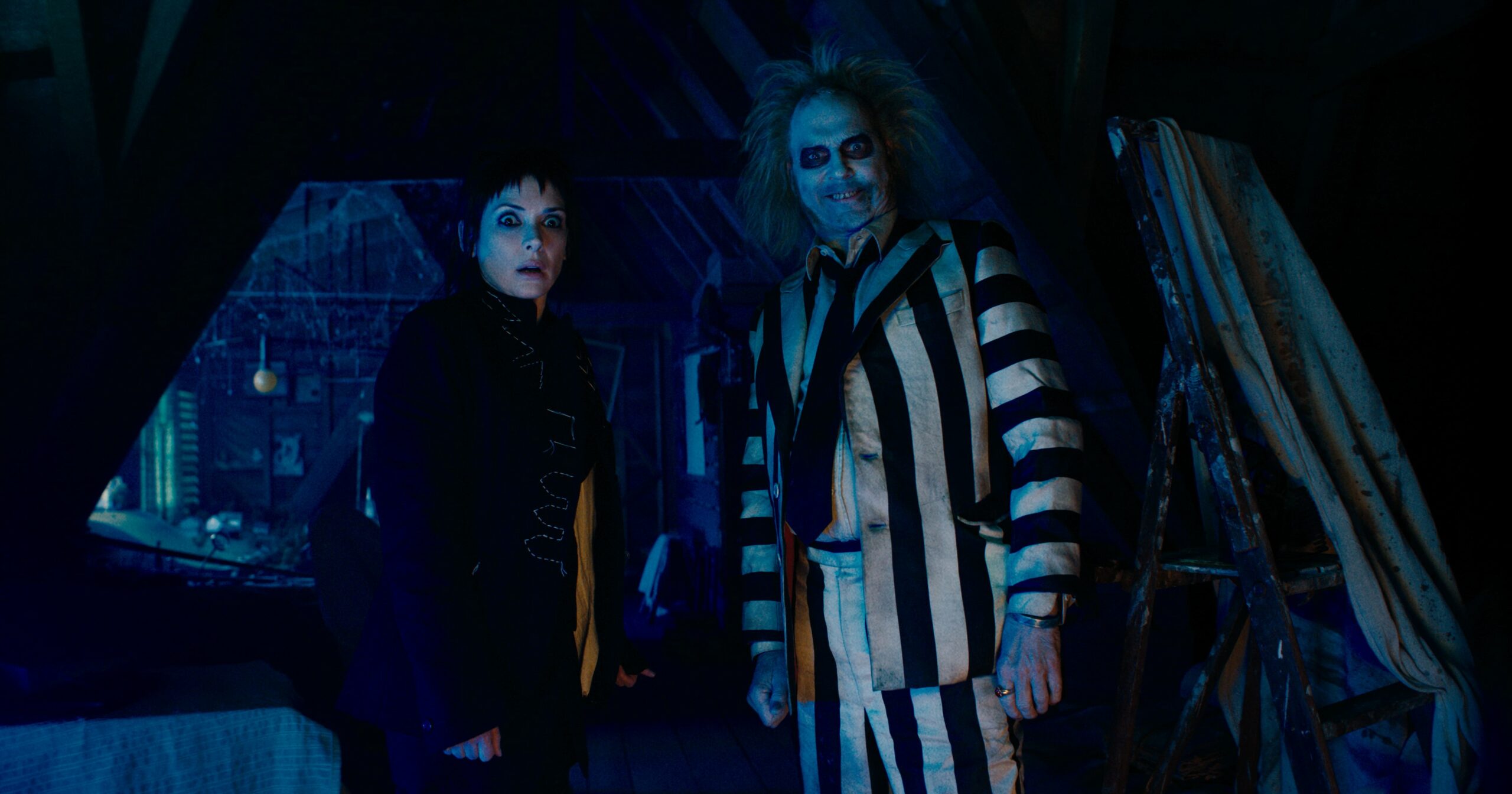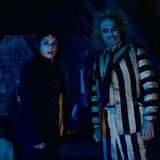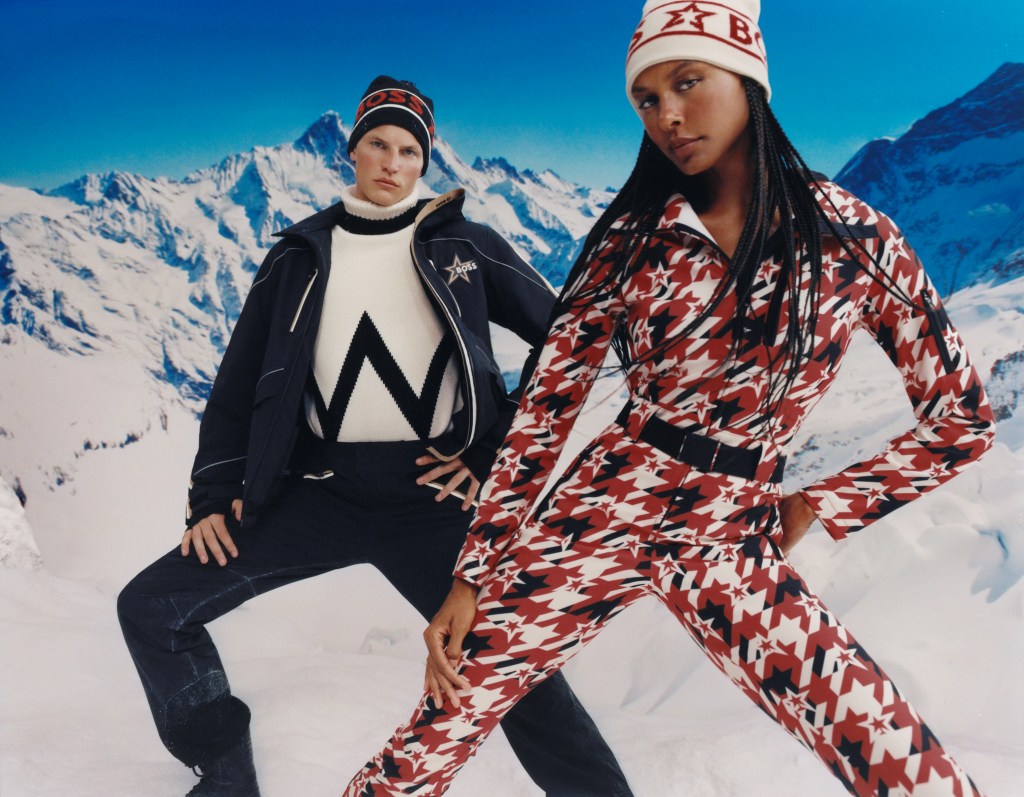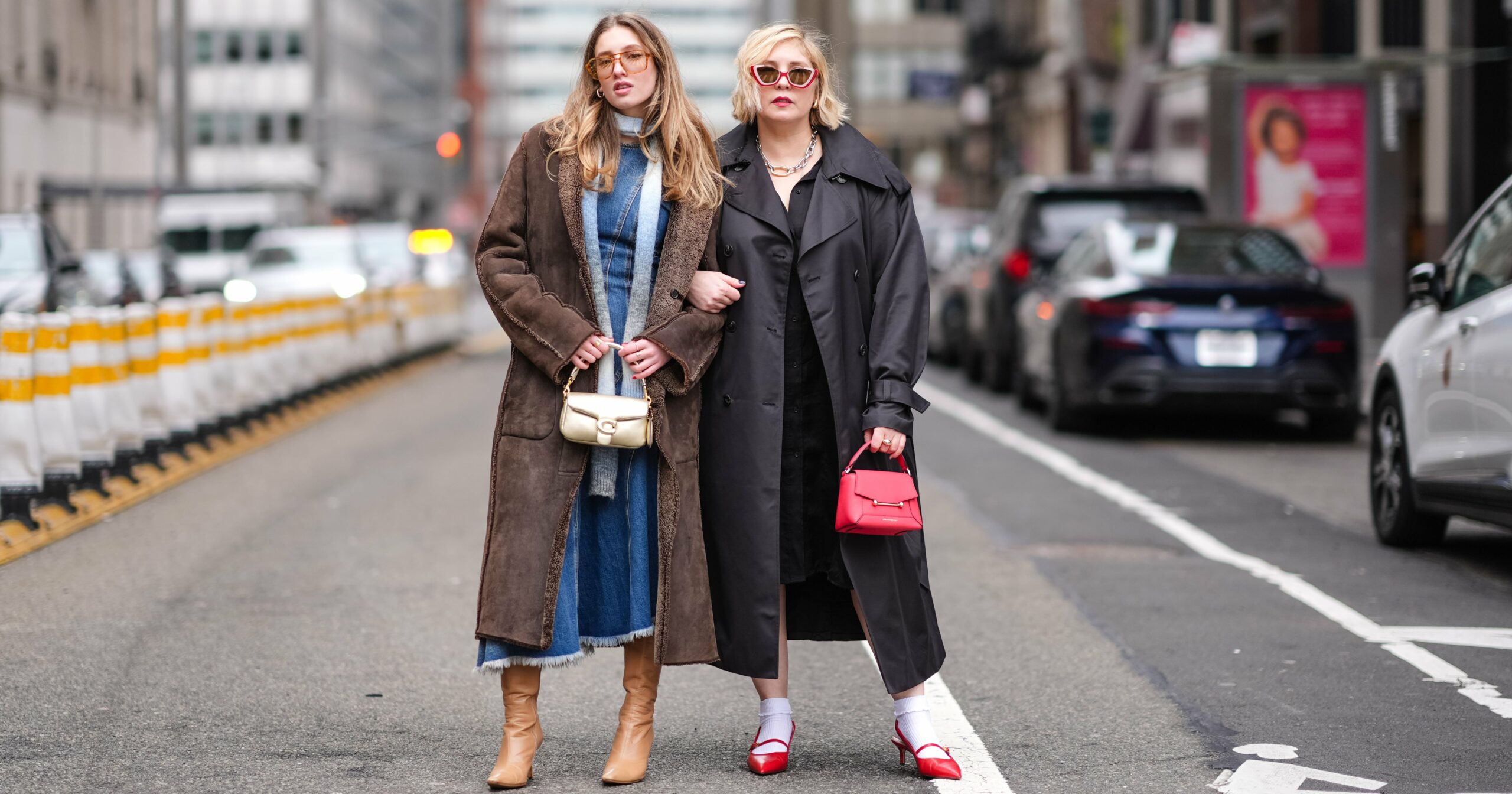If there’s one movie that’s going to get you feeling the spirit of Halloween early this season, it’s Tim Burton’s latest “Beetlejuice Beetlejuice.” The highly anticipated sequel to the 1988 classic brings back Beetlejuice (played by Michael Keaton), Lydia Deetz (Winona Ryder), and other beloved characters while also introducing fun new people for even more afterlife mischief. The film itself is delightfully spooky, but where beauty lovers are concerned, we are treated to fantastical and goth-inspired makeup and hair that we can’t help but obsess over. And, it turns out the creation process was just as fun as it looks.
“I can’t tell you how much fun this film was,” Christine Blundell, the film’s makeup and hair designer, tells PS. Read on below to see how the magic was made (and possibly find some great inspiration for your Beetlejuice makeup look this year).
Michael Keaton’s Beetlejuice
How long did it take to get the finished look for the titular character? An impressive 35 minutes. She says she and her team of hairstylists and makeup artists worked like a pit stop team to get all the actors’s makeup and hair looks down pat. “We had to work out how to shortcut [getting look],” she says. “You’ve got restrictions as to how long you’ve got. So part of our aim with all of the main cast was to get their makeup down as fast as possible.”
It also didn’t hurt that Keaton hasn’t physically changed much since the original debuted 36 years ago; it helped keep Beetlejuice’s look as close to the original as possible. “He is our one element that couldn’t change,” she says. “He’s in the afterlife, so you see, he has to stay the same.”
The main focus of Beetlejuice is the creased white face paint, mold-like green texture, and his wigs. Blundell says that Keaton was a fun collaborative partner, offering feedback to get his look just right. “He is very specific about how he likes his hair to look and everything,” she says.
Winona Ryder’s Lydia Deetz
It was very important to Burton that the cast was involved in the creation of their distinct looks, so planning ahead of time wasn’t much of an option. “My first question [to Burton] was, ‘Does Lydia look the same as the goth from back in the day?'” His response wasn’t much help at that moment. He said: “I’m really reluctant to talk about any of the main cast until they’re sitting in a chair with us, so it’s a collaboration.'”
Blundell did prep a few wigs with different fringe bangs and makeup looks as she sat with Ryder to talk about what direction they wanted an older Lydia to take. It was important to give a nod to the original but with a twist. Adult Lydia, they decided, would have two distinct looks: her TV persona (Lydia is the host of supernatural talk show “Ghost House”) and everyday life. “We decided that her show look would very much be a very definite nod to the original film; her hair is much more pointy, more gelled and everything. So it is deliberately meant to look like how she did in the first one,” says Blundell. “Then we go into her softer but short fringe [for when she’s not on her show]. Her makeup’s meant to look deliberately like she’s had it on for ages. . . we thought it would be funny if she just doesn’t have time to keep redoing it.”
Catherine O’Hara’s Delia Deetz
Blundell had multiple wigs made for Catherine O’Hara’s Delia that first arrived in a light copper tone. After one look at them, both Blundell and O’Hara made the executive decision to go wild with red. O’Hara asked for the red to be “‘as crazy as you can make it.’ So then, all of a sudden, we’re just coloring wigs and cutting them into styles.”
O’Hara wore bright crimson throughout the movie, which really popped against the darker backgrounds and tones of the movie. It was important to pay homage to Delia’s original portrayal in the 1988 film. “Both Catherine and Winona wanted their characters to have that creative madness that was there originally,” says Blundell.
As far as wig advice goes, Blundell has two pro tips: first, make sure you have enough length at the back so that the wig doesn’t lift. Second, she recommends braiding your hair in plaits so you can sew the wig in through to secure it.
Jenna Ortega’s Astrid Deetz
Played by Jenna Ortega, Astrid is Lydia’s rebellious daughter who is anti-everything associated with her mom. Because of that, Blundell says they decided to go in the opposite direction of Lydia for makeup and hair. This means Ortega wore next to no makeup and kept her hair untouched and fringe-free. “We didn’t want [her look] to be a one-trick pony,” says Blundell, referring to Ortega’s other known Tim Burton role as Wednesday Addams. “We were very careful not to recreate any fringe of any kind.”
But that didn’t mean Ortega went on set completely unpampered. Her skin got the TLC it needed. “Nirvana Jalalvand [Ortega’s hair and makeup artist] made up for it just by putting nice creams on her,” says Blundell. “I’m just like, ‘We’re spending nothing on you, at least get you good stuff.”
Monica Belluci’s Delores
Beetlejuice’s scorned ex-wife looking to exact revenge on him is the plot we can all get behind. Delores, played by the legendary Monica Belluci, is both fabulous and terrifying as a soul sucking demon who will kill anyone in her way. Audiences are introduced to her in a Frankenstein-like scene that has her different body parts assembled together with a staple gun. The end result is equal parts mesmerizing and haunting. “Tim had done a sketch of how he wanted her character to look and we then just reversed it; we went backward from that and took her apart,” Blundell says.
Working with Neal Scanlan, the creature effects creative supervisor, and his team, Blundell made sure the hair and makeup worked well with the scene, sharpening those staple and glue lines to give it that manic, put-together feel.
“Monica had so much fun doing it; we laughed so much,” Blundell says. “She would literally be in the chair at five or six in the morning and she was the loveliest person. When we actually got onto set, we were howling with laughter.”
The Soul Train
Named after the popular ’70s dance show, the Soul Train is where one’s soul gets taken to the afterlife. But there are no dreary or solemn vibes on the Soul Train – it was a lively, psychedelic dance party on the way to death. Blundell says that she, her team, and costume designer Colleen Atwood brainstormed on how to get all the dancers looking like dead versions of themselves with a disco flare.
“That was all wigs,” says Blundell of the hair. “But a lot of those were sewn on because we knew that those actors were all professional dancers.” Meaning they wouldn’t hold back when it came to big movements and head shaking.
Justin Theroux’s Rory – Plus Characters
The film is hardly short of amazing talent. Justin Theroux, William DaFoe, and Arthur Conti all play vital supporting roles. Blundell says that just like the main cast, these actors were very hands-on when it came to creating the final looks. “Justin was another one that was good fun,” she gives as an example. “He was really adamant that he wanted to look very geeky.”
Even Danny DeVito makes a small but memorable cameo. “He was only in for two days, but we just had so much fun with him. Tim wasn’t really sure where he was going with him, but [Danny] just wanted to be collaborative.”
It was really the trust that all these actors had in Blundell and the team that really made everything work seamlessly. They assured her, “‘Whatever your ideas are, we will bring them to life,'” she says. “You couldn’t hope for a better [film] to actually just play about with makeup on.”
Audrey Noble is a beauty writer who covers breaking news, writes celebrity profiles, and does deep-dive features about the ways race, gender, sexuality, and other forms of identity impact society via the beauty industry. Previously, she was the beauty reporter at Allure and has held editorial positions at Vanity Fair and Refinery29. Audrey’s work can also be seen in PS, Vogue, Harper’s BAZAAR, Bustle, InStyle, WWD, and more.



